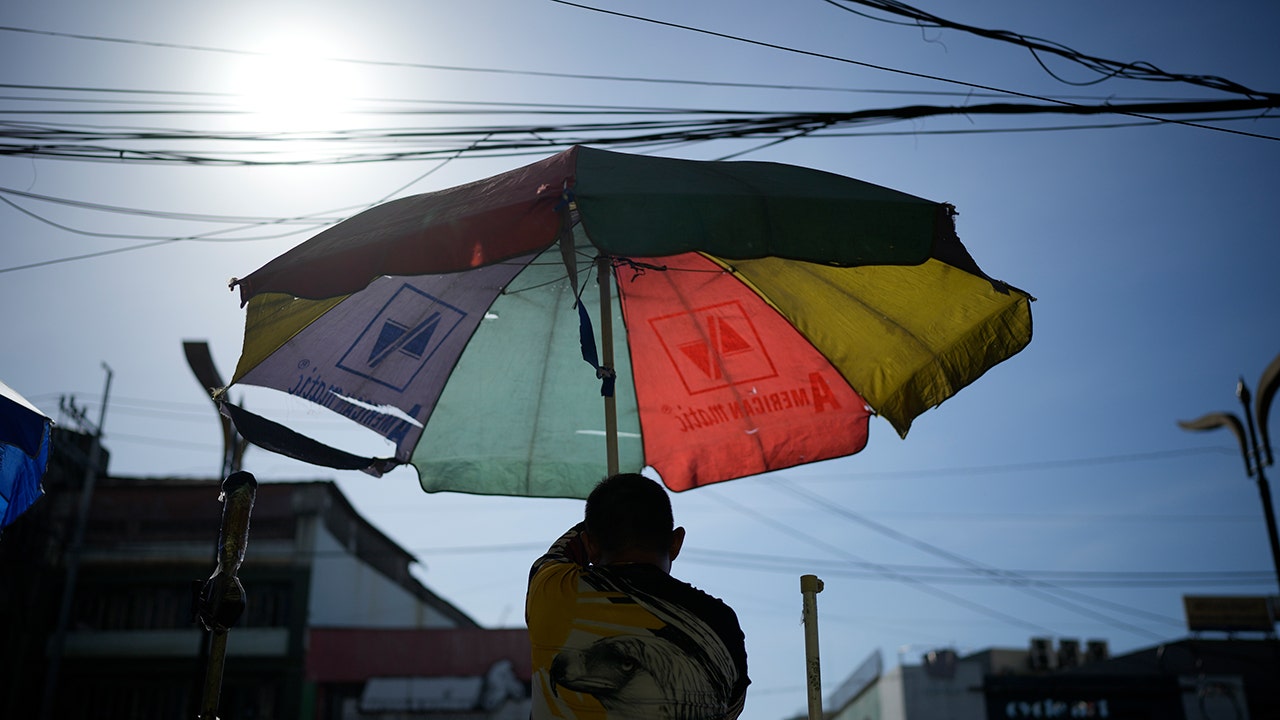Heat Wave Forces School Closures Across Half Of Philippine Capital

Table of Contents
Extent of School Closures and Affected Areas
The current heat wave has resulted in a significant number of school closures across Manila and its surrounding provinces. The sheer scale of the disruption to education is alarming, impacting thousands of students. The affected areas include several districts within Metro Manila itself, as well as neighboring provinces experiencing similarly high temperatures. Precise figures are still emerging, but initial reports suggest a substantial percentage of schools in these regions have been temporarily shut down.
- Specific Cities and Municipalities: The most severely affected areas include Quezon City, Caloocan, and Pasig City in Metro Manila, along with Bulacan and Cavite provinces. These areas have reported the highest temperatures and consequently the largest number of school closures.
- Percentage of Schools Closed: Estimates indicate that over 50% of schools in certain districts within Manila and neighboring provinces have been forced to close due to the extreme heat. This represents a massive disruption to the educational calendar.
- Disproportionately Affected Districts: Preliminary data suggests that schools in low-income areas, often lacking adequate cooling infrastructure, are disproportionately affected by the heat wave, highlighting existing inequalities.
Health Risks Associated with Extreme Heat
The extreme heat poses significant health risks, particularly for children and vulnerable populations like the elderly. Prolonged exposure to high temperatures can lead to a range of serious health issues:
- Common Heat-Related Illnesses: Heat stroke, heat exhaustion, and severe dehydration are the most prevalent health concerns. Heat stroke, in particular, is a life-threatening condition requiring immediate medical attention.
- Vulnerable Populations: Children, due to their immature thermoregulation systems, are especially vulnerable to heat-related illnesses. The elderly are also at heightened risk due to age-related physiological changes.
- Importance of Prevention: Staying adequately hydrated by drinking plenty of water is crucial. Avoiding prolonged sun exposure, especially during peak hours, and seeking shade when possible are essential preventative measures. Wearing light-colored, loose-fitting clothing also helps regulate body temperature.
Government Response and Safety Measures
The Philippine government has implemented several measures to address the ongoing heat wave and protect its citizens:
- Government Initiatives: The Department of Education (DepEd) issued advisories recommending school closures in affected areas. The Department of Health (DOH) has launched public awareness campaigns highlighting the dangers of extreme heat and providing guidance on heat safety precautions.
- Cooling Centers: Several cooling centers have been established across Manila and surrounding areas to provide relief to residents, particularly the elderly and those without access to air conditioning. The locations of these centers are widely publicized.
- Public Awareness Campaigns: The government has launched extensive public awareness campaigns through television, radio, and social media, urging citizens to stay hydrated, avoid unnecessary outdoor activity during peak heat hours, and seek medical attention if they experience symptoms of heat-related illnesses.
Long-term Implications and Climate Change
This heat wave underscores the escalating impact of climate change in the Philippines. The increasing frequency and intensity of extreme weather events, such as heat waves, pose a significant long-term threat to public health and infrastructure.
- Climate Change Connection: Scientists link the increased intensity and frequency of heat waves directly to global warming and climate change. The rising global temperatures are leading to more prolonged and severe heat events.
- Long-term Effects: Extreme heat can cause damage to infrastructure, disrupt agricultural production, and place a significant strain on healthcare systems. The long-term health consequences of repeated heat wave exposure are also a serious concern.
- Mitigation Strategies: Investing in sustainable infrastructure, such as improved ventilation in schools and public buildings, and expanding access to cooling systems are crucial steps. Continuing public awareness campaigns and promoting sustainable practices are also vital for mitigating the impact of future heat waves.
Conclusion
The heat wave currently affecting Manila has caused widespread school closures, posing significant health risks and disrupting daily life. The government's response has included school closures, public awareness campaigns, and the establishment of cooling centers, demonstrating a commitment to protecting citizens from the dangers of extreme heat. However, this situation also highlights the urgent need to address the long-term implications of climate change and strengthen our resilience to increasingly frequent and intense heat waves. Stay informed about heat wave warnings and take necessary precautions to protect yourself and your family from extreme heat. Learn more about heat wave preparedness and support initiatives aimed at mitigating the effects of climate change to prevent future occurrences of this severe heat wave and protect the health and safety of students and the community. Stay updated on school closures and weather advisories related to the ongoing heat wave in Manila.

Featured Posts
-
 Jelena Ostapenkos Repeat Victory Over Iga Swiatek Sends Her To Stuttgart Semis
May 13, 2025
Jelena Ostapenkos Repeat Victory Over Iga Swiatek Sends Her To Stuttgart Semis
May 13, 2025 -
 Eva Longorias 50th Birthday A Miami Party With A List Friends
May 13, 2025
Eva Longorias 50th Birthday A Miami Party With A List Friends
May 13, 2025 -
 Braunschweiger Karneval Schoduvel 2025 Tv Uebertragung And Livestream
May 13, 2025
Braunschweiger Karneval Schoduvel 2025 Tv Uebertragung And Livestream
May 13, 2025 -
 Funeral Held For 15 Year Old Stabbing Victim
May 13, 2025
Funeral Held For 15 Year Old Stabbing Victim
May 13, 2025 -
 Nba Draft Lottery 2025 The Cooper Flagg Factor And Team Probabilities
May 13, 2025
Nba Draft Lottery 2025 The Cooper Flagg Factor And Team Probabilities
May 13, 2025
